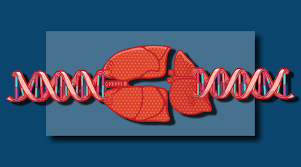14 July 2023 | Friday | News

Image Source | Public Domain
Alpha-1 is an underdiagnosed2 genetic disorder that can result in chronic obstructive pulmonary disease (COPD), a group of respiratory diseases that includes emphysema, which can occur when a patient has low levels of alpha-1 antitrypsin (AAT), a protective protein that safeguards the lungs. The currently approved dosage is 60 mg/kg in weekly infusions.
SPARTA, the largest randomized, double-blind, placebo-controlled study on AAT augmentation therapy to-date, is designed to evaluate the potential of Prolastin®-C to significantly reduce emphysema progression in alpha-1 patients by raising AAT protein levels through weekly administration of two active dose levels versus placebo.
The clinical trial is taking place across 16 countries and more than 50 sites. It will evaluate the efficacy and safety of two separate dose regimens of Prolastin®-C (60 and 120 mg/kg/week) versus placebo for 156 weeks (i.e., three years), measuring the rate of pulmonary-tissue loss through whole lung computed tomography (CT) densitometry as the primary measure of clinical efficacy.
“While alpha-1 patients currently benefit from recommended AAT augmentation therapy, we hope to show clinical evidence of benefit with the current approved dose and a greater impact by doubling the single dose to 120 mg/kg weekly,” said Sandra Camprubi, Grifols Senior Director Clinical Operations. “We look forward to providing topline data from this study in 2026 and evaluating the next regulatory steps to provide emphysema patients impactful treatment options for alpha-1.”
The company’s robust innovation pipeline includes a strong commitment to supporting the alpha-1 community. Earlier this year, Grifols launched its AlphaID™ At Home Genetic Health Risk Service (AlphaID™ At Home), the first-ever free direct-to-consumer program in the U.S. to screen for the genetic risk of alpha-1.
© 2026 Biopharma Boardroom. All Rights Reserved.